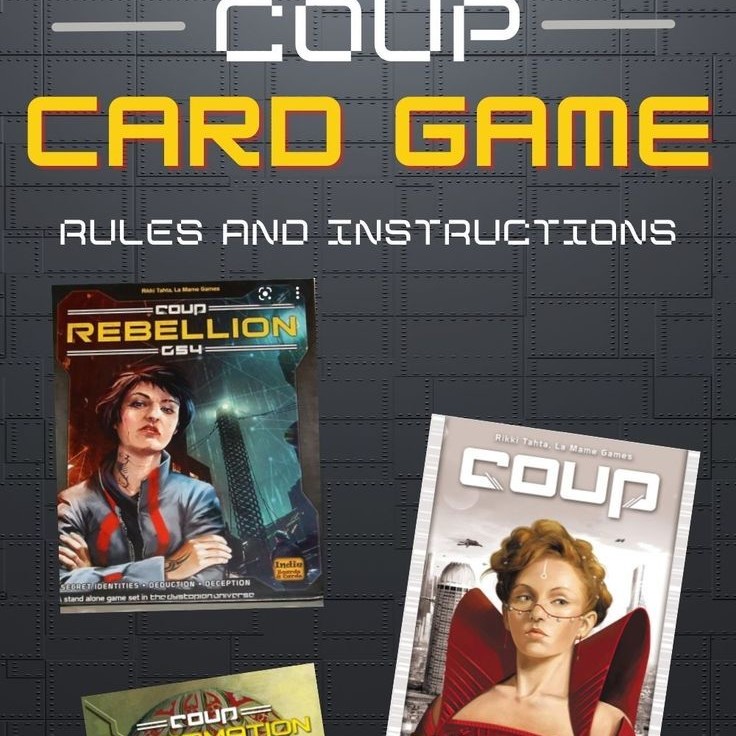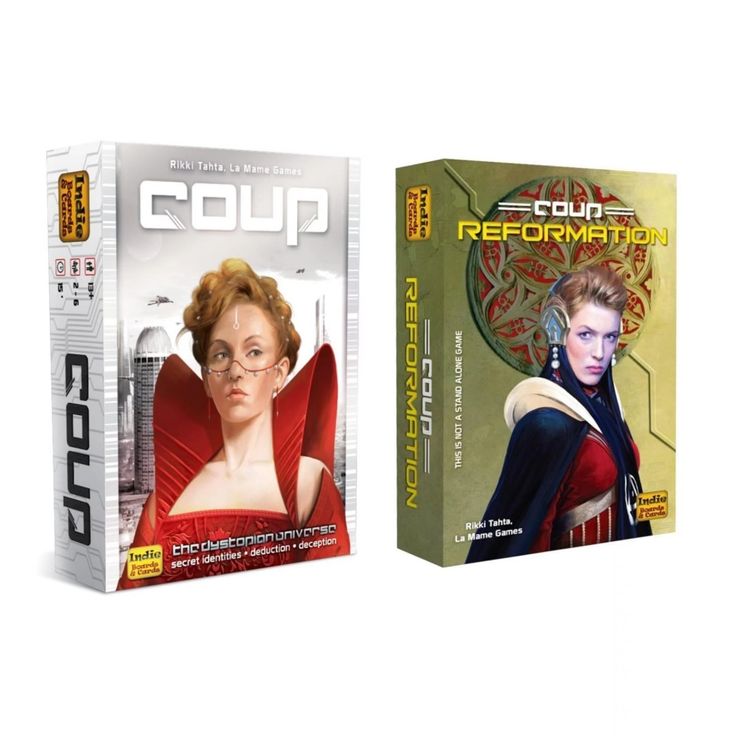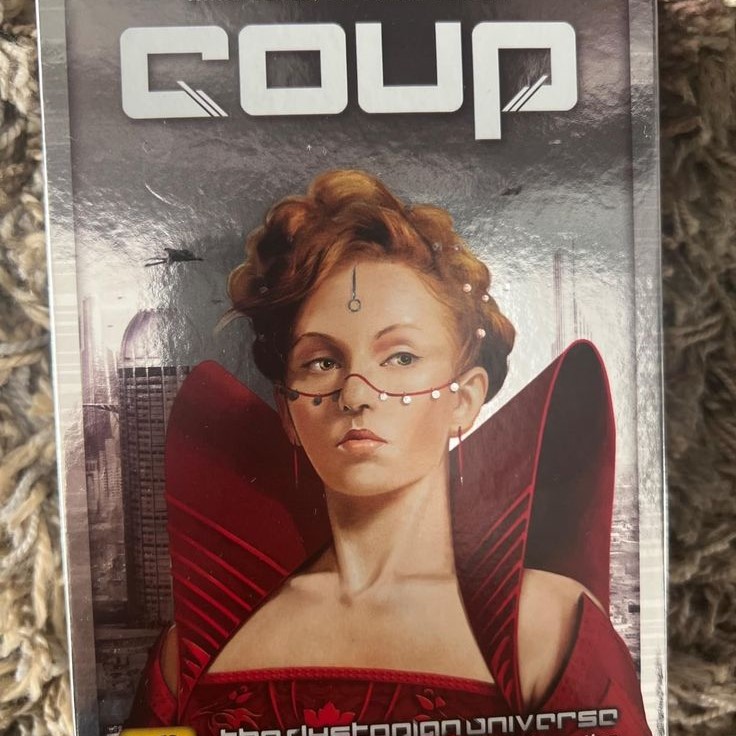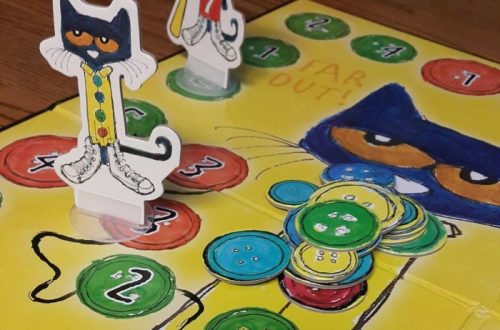Introduction to the Coup Board Game
The Coup board game has emerged as a beloved staple in the realm of strategic card games. Known for its blend of bluffing, deduction, and strategy, Coup offers players a chance to engage in thrilling gameplay filled with unexpected twists. Whether you’re a seasoned gamer or new to the world of strategy games, this game invites you to immerse yourself in a politically charged atmosphere where deception and cunning are vital. In this article, we will explore the mechanics, strategies, and overall experience of the Coup board game, providing insights that will enhance your understanding and enjoyment of this captivating game.

The Mechanics of Coup: Understanding the Gameplay
To fully appreciate the Coup board game, it’s essential to understand its mechanics. At its core, Coup revolves around players attempting to eliminate others while safeguarding their own influence. The game is designed for 2 to 6 players and usually lasts around 15 to 20 minutes, making it an excellent choice for both quick gaming sessions and longer game nights.
- Game Setup: Players start with two hidden influence cards, which represent their characters’ abilities. While each character has specific capabilities, players must keep their cards secret. The element of surprise plays a crucial role as players attempt to deduce their opponents’ characters through observation and strategic choices.
- Game Turns: On a player’s turn, they can perform one of several actions. The basic actions include taking money, launching coups, or challenging other players’ claims about their cards. Each action carries different risks and rewards. For instance, claiming to have a powerful character may intimidate opponents, but it can also lead to a challenge that reveals your bluff.
- Winning the Game: The goal is to be the last player standing with influence. Strategies often involve managing your resources effectively, while also being mindful of your opponents’ actions and potential hidden abilities.
Through these elements, the game strikes a balance between luck and strategy. In this fast-paced environment, players must think on their feet and adapt their plans accordingly. This blend makes Coup engaging and re-playable, as each session unfolds differently, driven by player interactions.
Character Abilities: The Heart of Coup Strategy
One of the most intriguing aspects of the Coup board game is the unique abilities of each character represented by the influence cards. Understanding these characters is vital for mastering the game.
- Duke: The Duke allows players to tax others effectively, garnering significant resources. Moreover, the Duke can block foreign aid, making this character central for maintaining economic control.
- Assassin: The Assassin can remove an opposing player’s influence by offering a bounty. This action adds a layer of risk, as opponents can challenge the claim, revealing the Assassin’s character if proven false.
- Captain: The Captain’s strength lies in stealing funds from other players. This ability can create tension, particularly when opponents are low on influence.
- Ambassador: The Ambassador can swap influence cards with the court deck, allowing players flexibility and information advantage. Players using this character can bluff effectively or adjust their strategy based on knowledge of the deck.
- Contessa: The Contessa can block assassination attempts. This defensive ability helps players maintain their influence while keeping opportunities open for strategic moves.

Mastering the use of each character’s ability is essential for players hoping to gain an edge in Coup. Combining strategic moves with calculated bluffs can confuse your opponents and keep them on their toes. The interplay of these characters provides unlimited possibilities, enhancing the strategic depth that sets Coup apart from other card games.
Strategies for Winning at Coup
Success in the Coup board game relies heavily on clever strategies and the ability to read opponents. Here are some tips to improve your gameplay:
- Layer Your Deceptions: One of the chief elements of Coup is bluffing. Players must be adept at mixing truths with lies. For example, if you convincingly claim to be a Duke early in the game, opponents may be hesitant to challenge you later, allowing you to build a strong economic base.
- Adapt to Player Behavior: Each round presents opportunities to observe opponents. By paying close attention to their betting patterns, you can better ascertain their characters and motivations. This strategic observation may reveal weaknesses or potential threats.
- Control the Flow of the Game: Economic control is vital. If you sense players hoarding money, consider using the Assassin or challenge their claims. Forcing opponents into defensive positions often yields an advantage.
- Play the Long Game: Don’t rush to eliminate players. Sometimes, fostering temporary alliances can serve your interests. By allowing other players to engage each other, you preserve your influence while steering clear of attention.
- Practice Makes Perfect: Regularly playing Coup will enhance your understanding of strategies and the various dynamics involved. Over time, players become more attuned to subtle cues and develop their unique winning styles.
These strategies can provide a solid foundation for enhancing your Coup experience, fostering both competitive engagement and enjoyment.
The Social Aspect of Playing Coup
While Coup is undeniably a strategy game at its core, it also thrives on the social interaction it fosters among players. The blend of bluffing, deduction, and risk enhances the overall experience and leads to memorable game nights.
- Building Relationships: The nature of the game encourages players to form temporary alliances and strategic relationships. Engaging in conversations about potential character claims or alliances fosters a dynamic atmosphere.
- Tension and Humor: The bluffing aspect not only creates tension but often leads to humorous situations, where players get caught in lies or hilariously exaggerated claims. These moments enhance camaraderie and create lasting memories.
- Encouraging Replayability: Because Coup is relatively short and interactive, players are generally eager to engage in multiple rounds. The social component promotes a fun environment where different strategies and personas can be tested repeatedly.
- Themed Nights and Variations: As a result of its flexibility, many players create themed game nights, encouraging creative twists on classic gameplay. Such variations can include house rules, alternate win conditions, or adding additional strategy games into the mix.
Fostering these social dynamics is key to creating an engaging game environment. Coup’s interaction-heavy approach makes it an ideal choice for gatherings where players seek both strategical challenges and fun moments with friends and family.
Expanding Your Coup Experience
If you find Coup to be a hit, consider seeking out expansions or variations that enhance your experience. Here are a few ideas for expanding your gameplay:
Explore Game Variants
- Understanding Variants: Game variants are modifications made by players to existing games, aimed at enhancing or changing aspects of gameplay. An understanding of these variants can open up new ways to enjoy the Coup board game.
- Types of Variants: Some variants might introduce new characters with unique abilities, while others might alter the mechanics, such as changes in how funds are accumulated or how players lose influence. Each variant brings a fresh perspective to the game.
- Community Input: Many enthusiasts share their variants online, often through forums or social media groups. Engaging with these communities can provide valuable insights into successful adaptations and how they impact gameplay.
- Testing Variants: Before incorporating a variant into regular gameplay, it’s advisable to test it first. Gather a small group and try out the variant to see how it changes the experience. This helps ensure everyone enjoys the modifications.
- Finding Resonance: Make sure to choose variants that resonate with your gaming group. Discuss preferences and ideas with fellow players and decide together which variants might enhance your game nights.
Engage in Online Play
- Exploring Online Platforms: Many online platforms offer the opportunity to play Coup against other players. Websites or dedicated gaming apps allow you to engage in matches from the comfort of your home.
- Expanding Your Player Pool: Online play connects you with a global community, providing access to a diverse range of players. This variety can expose you to different strategies and play styles that improve your skills.
- Fostering Competitive Engagement: The thrill of competing with players from various backgrounds can elevate your gaming experience. Engaging in online matches often introduces varying levels of challenge, keeping the gameplay dynamic and exciting.
- Participating in Tournaments: Many online platforms also host tournaments, where you can compete against top players. Participating in these events can be both fun and educational as you will witness high-level strategies in action.
-
Access to Tutorials and Guides: Online platforms often include resources such as tutorials or strategy guides to help newcomers understand the game better. Utilizing these resources can boost your confidence and gameplay effectiveness.
Create Your Custom Rules
- Incorporating Custom Rules: While it’s essential to maintain the core mechanics of the Coup board game, you can introduce custom rules tailored to your group’s preferences. This personalization can make the game more enjoyable.
- Unique Character Abilities: Consider designing new characters with special abilities. For instance, you might create a character that can block specific actions or steal resources, adding another layer of strategy to the game.
- Altering Win Conditions: Customizing win conditions can shift game dynamics significantly. For example, you could establish rules where alliances are formed and maintained, changing how players interact during the game.
- Facilitating Group Discussion: Involve your group in discussions about potential custom rules. Gathering input from all players ensures that everyone feels included and can influence the game’s direction.
- Testing Custom Rules: Once custom rules are decided, test them during a game session. Monitor how these modifications impact gameplay and make adjustments as necessary to maintain balance and fairness.
Host Tournaments
- Organizing a Tournament: If your gaming group enjoys competitive play, hosting a Coup tournament can add excitement. Structure the tournament to accommodate multiple rounds, allowing players to face off in a more organized manner.
- Creating Mini-Brackets: Consider creating smaller brackets where players compete in rounds. This format can maintain high levels of competition while also managing the time taken for each game.
- Setting Rules and Guidelines: Establish clear rules and guidelines for the tournament, including how many games are played and what criteria determine eligibility for elimination or advancement.
- Fostering a Dynamic Atmosphere: Hosting a tournament encourages a lively environment. Players are likely to engage more intensely, heightening the stakes and making every round refreshing and thrilling.
- Providing Prizes: Consider offering small prizes or awards for winners. Recognizing top performers can add an extra layer of motivation for participants and make the event memorable.
Join Community Events
- Finding Local Gaming Communities: Many cities and regions have dedicated gaming communities that host regular events or conventions. Connecting with local players can lead to various opportunities for enjoyment.
- Participating in Game Conventions: Attend game conventions that feature Coup among other popular titles. These conventions often host various activities, including tournaments, demos, and opportunities to meet fellow enthusiasts.
- Engaging in Local Meetups: Look for local meetups or gaming nights in your area. These gatherings provide informal ways to play while socializing with other players who share your interests.
- Networking with Fellow Gamers: Joining community events is a fantastic way to bond with like-minded individuals. Engaging in conversations about strategies, favorite games, and experiences can enrich your gaming journey.
- Expanding Gameplay Horizons: Community events can expose you to different interpretations of Coup and other games, expanding your gaming horizon. Discovering new variations or game mechanics can provide numerous avenues for fun and engagement.
By exploring these ideas, you can substantially enrich your Coup experience, making every game night an adventure in strategy, humor, and interaction.
Conclusion: Embrace the Challenge of Coup
The Coup board game is a delightful blend of strategy, social interaction, and unexpected moments. With its unique mechanics and engaging gameplay, Coup offers a profound experience that keeps players coming back for more. By understanding the characters, employing clever strategies, and fostering social dynamics, you can elevate your game nights and create unforgettable memories with friends and family. So gather your group, prepare your tactics, and dive into the exciting world of the Coup board game. You’ll discover endless fun and competitive thrills waiting just for you!







